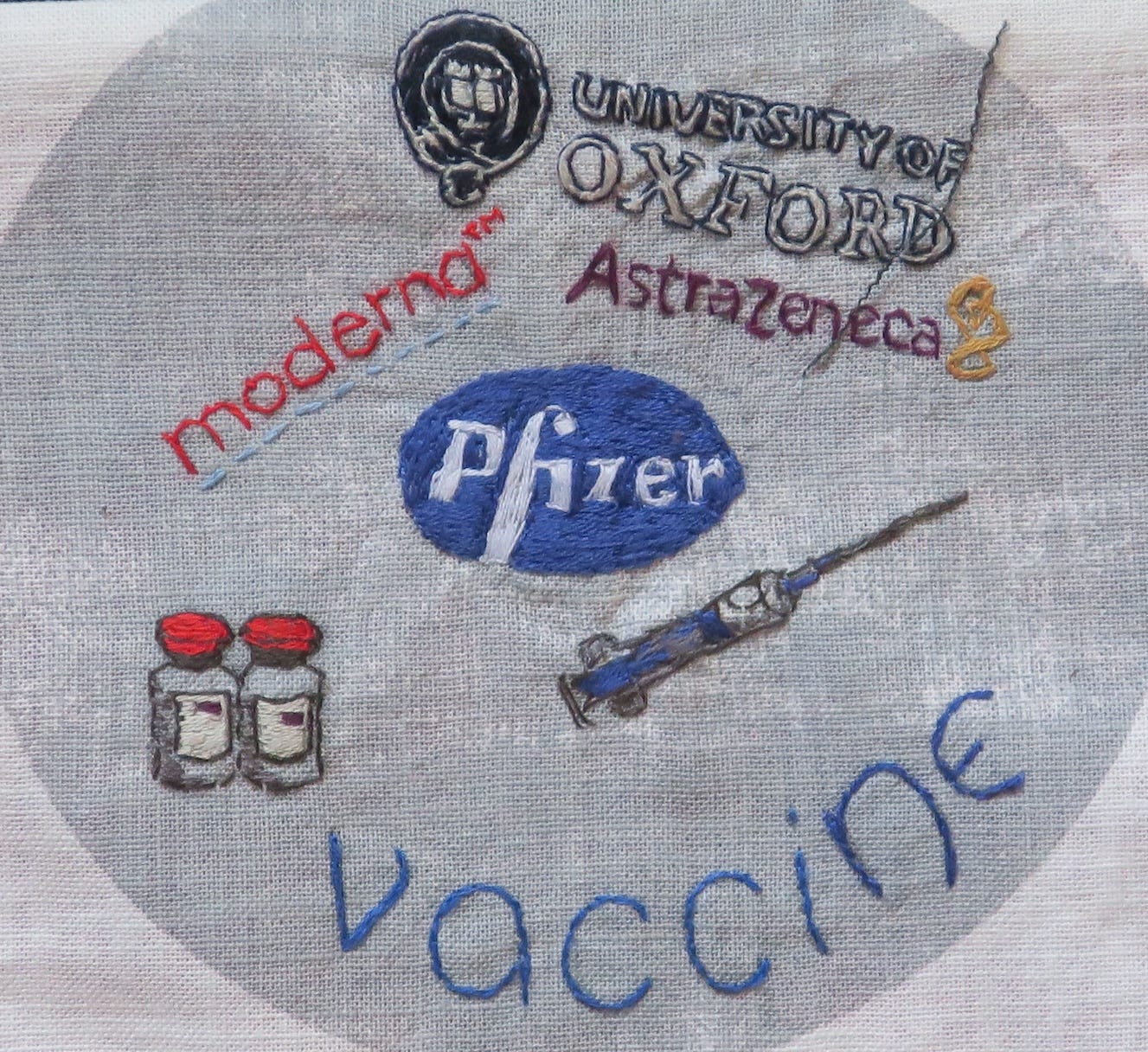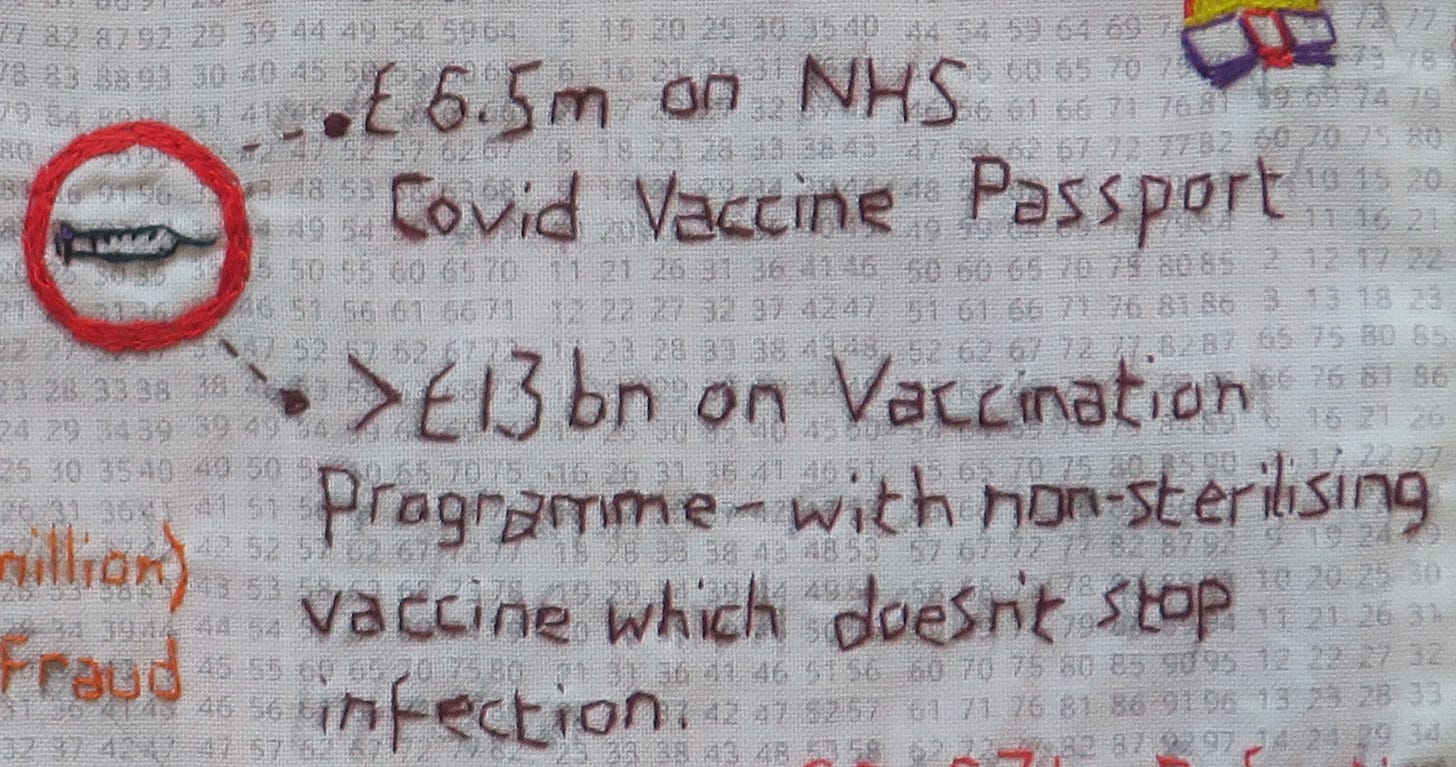‘The arrival of a pandemic will also require the rapid development and deployment of vaccinations and anti-virals. The urgency of the event will mean that the normal procedures for development and licensing may have to be suspended or adapted to the demands of the emergency. In turn this could lead to health professionals using large numbers of relatively novel and untested pharmaceutical interventions. Mass use of untried vaccine could result in numerous adverse events. Issues of liability will therefore have to be addressed as a matter of urgency by the Government’.
BMA: COVID-19 – ethical issues. A guidance note 13th March 2020
Emergency Use Authorisation and the Liability Clauses
On 1st December 2020, Lord Bethel ‘formally signed the Pfizer vaccine off’ for the UK. The following day, Pfizer/BioNTech's novel Covid-19 modified mRNA vaccine was authorised for adults in the UK by the MHRA, under Regulation 174 of the Human Medicine Regulations 2012.
Regulation 174 allows for emergency approval of unlicensed ‘medicinal products that may treat dangerous pathogenic agents, toxins, chemical agents, or nuclear radiation', to be used in an emergency such as a pandemic. These regulatory amendments had been brought into effect on 16th October 2020 following a 3 week consultation. Valid initially for a year, Emergency Use Authorisation (EUA) required the pharmaceutical companies to complete specific obligations, such as ongoing or new studies.
Oxford-AstraZeneca’s Viral Vector Covid-19 vaccine was also given the UK emergency use approval on 30th December 2020; Moderna’s modified mRNA vaccine was approved on 18th January 2021 with Janssen’s ‘single dose’ viral vector vaccine following suit on 28th May 2021.
For the Pfizer/BioNTech Covid-19 vaccine, temporary EUA had been granted on the basis of efficacy data submitted between 1 October and 2 December 2020, before publication of their Phase 3 trial data. Unfortunately the results of those Phase 3 trials were then rendered void because within weeks of the vaccines receiving an EUA, the majority of people in the placebo arm of the trials were offered and accepted active vaccine. With the unblinding of the trials and eradication of the placebo/unvaccinated control group, we are now wholly reliant on post-marketing observational data for evaluation of vaccine safety and efficacy.
The new Regulation 345 of the Human Medicines Regulations of 2012 also now granted healthcare professionals and manufacturers indemnity, protecting them from any civil legal action resulting from damage arising from the use of the vaccine. Manufacturers remain liable only in the case of a serious breach, such as a defective product. Allegedly this move was to encourage companies to ‘aggressively invest and back vaccine development’ and reduce their exposure to financial risk, a legacy from the 1980s, when drug companies had begun to incur legal costs over alleged harms caused by vaccines and many chose to stop making them. Indemnity means the government’s insurers and thus the taxpayer, rather than the vaccine industry, will pay any compensation in the event of complications.
Though the UK was one of the first countries to grant emergency approval for the Pfizer vaccine, similar deals were reached internationally. Pfizer’s would later become the first Covid vaccine to gain full US FDA approval, in August 2021.
Pfizer refused to disclose any details around the Covid vaccine purchase contracts, which contained confidentiality agreements so that any documents subsequently disclosed under Freedom Of Information (FOI) were also heavily redacted. Allegedly in India, negotiations regarding the Pfizer and Moderna SARS-COV2 mRNA vaccines fell through because the Indian government declined to meet such requests for legal protection over side-effects from their use. Instead India chose to use viral vector vaccines (Oxford-AstraZeneca and the Russian-made Sputnik-V), a protein subunit vaccine (Corbevax) and the Indian whole-inactivated virus vaccine (Covaxin).
All of the big pharmaceutical companies enjoyed astronomical profits from the universal global vaccine push, with estimates at their peak of $1000 per second profits for Pfizer/BioNTech and Moderna.
The indemnity awarded to them means they will not be required to pay a penny to anyone experiencing harm from their products.
Adverse Drug Reactions (ADRs)
Colloquially known as ‘side effects’, adverse drug reactions (ADRs) are defined as:
‘a response to a medicinal product which is noxious and unintended, where a causal relationship between the medicinal product and adverse event is either known or strongly suspected’.
The terms 'adverse reaction' and 'adverse effect' are used interchangeably but a drug has an adverse effect, whereas a person experiences an adverse reaction. These terms are considered preferable to others such as 'side effect', because they ‘make no assumptions about mechanism, evoke no ambiguity, and avoid the risk of misclassification.’
Adverse Events Following Immunisation (AEFIs)
In the UK, we use ‘The Green Book’ as a reference for the latest information on vaccines and vaccination procedures. The section on vaccine safety refers to the WHOs classification of Adverse Events Following Immunisation (AEFIs):

AEFIs include:
All ADRs intrinsic to the vaccine.
Adverse events caused by the way it is administered.
Adverse events related to an underlying condition in the recipient.
Coincidental adverse events that would have occurred regardless of vaccination.

About 6–7% of hospital admissions in the UK are due to ADRs, rising to 8.7% in the elderly. ADRs are thought to occur in 10–20% of hospital in-patients. They can be categorised by frequency, severity and likelihood of causal relationship (the latter will be considered in separate substack post).
ADR Frequency:

ADR Severity:
ADRs can be described as mild, moderate, severe, and potentially life-threatening or lethal.
In practice, severity assessment is ‘largely subjective’ but in the context of clinical trials, the FDA has set out guidance documents for grading toxicity. Under their grading system, systemic symptoms such as myalgia and fatigue severe enough to warrant a day in bed are graded as severe (grade 3):

All Vaccines can cause side effects
‘All vaccines can cause side effects’ is the stock refrain, whenever the subject of potential or confirmed Covid-19 vaccine injury is raised in a public forum.
This is usually qualified with standard reassurances as to the overwhelmingly mild, anticipated and self-limiting nature of such reactions, emphasis on robust systems in place to detect important safety signals and reminders that risk from Covid-19 infection is much higher. Here are a few examples for illustration:
‘For the most part these are minor (for example, a sore arm or low-grade fever) and go away within a few days’
(CDC - ‘Possible Side effects from Vaccines’).
‘It’s normal to experience side effects after a vaccine. It shows the vaccine is teaching your body’s immune system how to protect itself from the disease. Not everyone gets side effects. Most side effects are mild and normally last only a day or two.’
‘The adverse effects of the COVID‑19 vaccination are similar to those of other vaccines, and severe adverse effects are rare. Adverse effects from the vaccine are higher than placebo, but placebo arms of vaccine trials still reported adverse effects that can be attributed to the nocebo effect'
‘You’re very unlikely to get any serious side effects, as these are very rare.’
‘MHRA is responsible for continuously monitoring the safety of all medicines and vaccines once they are approved for use’.
‘Rare cases of inflammation of the heart (called myocarditis or pericarditis) have been reported after Pfizer and Moderna COVID-19 vaccines. These cases have been seen mostly in younger men within several days after vaccination. Most of these people recovered and felt better following rest and simple treatments’.
‘A year is actually considered relatively "long term" when it comes to vaccine safety…that's enough time for all but the rarest side effects to have emerged….if you haven't had a reaction after the first couple of months, it is incredibly unlikely you will develop any new reactions to the vaccine…Billions of doses have been given, so any side effect not seen yet would be rarer than one in a billion…All the evidence suggests the overall risks of catching Covid are many times higher than any risks from the vaccine.'
(BBC)
At the risk of falling foul of ‘the fact-checkers’, there is a general awareness amongst those working in frontline General Practice, that the rate and severity of observed Covid-19 vaccine ADRs has been comparably higher than that of familiar standard vaccines. For example, in our practice in the first year of their use, we lost 6 staff working days to post-vaccination debilitating myalgia, lethargy, and fever in 3 staff members.
These symptoms meet the clinical trial criteria for ‘severe reaction’ by virtue of rendering the vaccine recipient unfit to attend work, and would be unusual if seen with any of the existing influenza vaccines.
Those in my personal acquaintance who experienced unpleasant or debilitating early ADRs, consoled themselves in the knowledge that their symptoms suggested a vigorous immune response to the vaccine and we all hoped this would mean better protection from the virus.
Unfortunately for them, this did not necessarily translate into a comparably less severe ‘flu-like illness from the subsequent Covid-19 infection and re-infections that their multiple vaccines would fail to prevent
.



















Thank you for this summary.
This is such a mess.
And I cannot believe the vaccine companies, public health and government will get away without any acknowledgment or accountability of their wrongdoings.
They were basically reckless.
Most people did not need any such mRNA product because they were never at high risk from this virus.
We are now looking at DNA-contamination, frame shifting, systemic spread of this product within the body rather than staying at the injection site.
Surely these findings should render any immunity from prosecution invalid.
MHRA not willing to share data because of ‘commercial sensitivity’…. Who are they working for?
I honestly don’t know where this is heading.